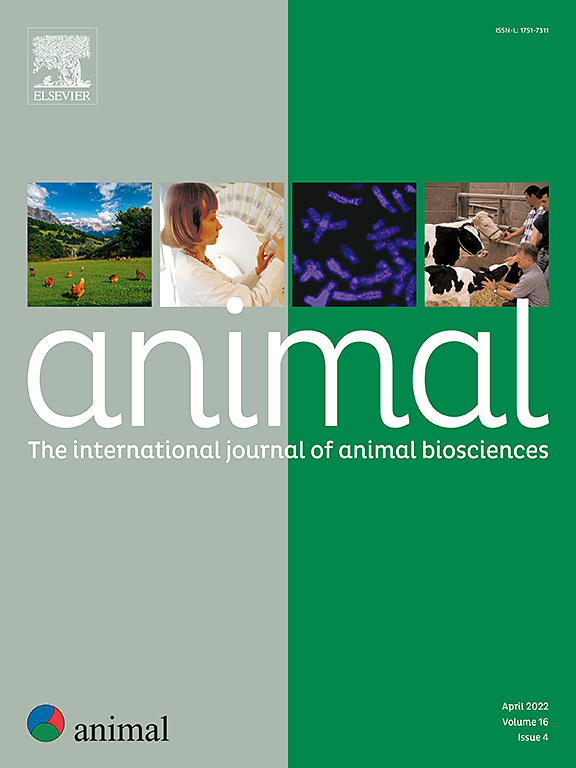综述:通过以昆虫为基础的农业食品侧流生物转化(黑兵蝇和黄粉虫)增强地中海粮食系统的恢复力。
IF 4.2
2区 农林科学
Q1 AGRICULTURE, DAIRY & ANIMAL SCIENCE
引用次数: 0
摘要
利用昆虫对农业废物流进行生物转化是解决地中海地区所面临的环境和粮食安全挑战的一个有希望的解决方案。研究已经证明了生物转化系统在建立食物系统内的新联系和从循环角度提供替代蛋白质来源方面的潜在优势。本文探讨了这些创新方法如何提高弹性特性(可吸收性、适应性和可恢复性),同时应对粮食部门的可持续性挑战。本研究综述了目前生物转化方法的实验研究及其在增强各弹性特性中的作用。研究结果表明,现有的研究主要集中在可吸收性上,这反映了减轻农业食品系统影响的紧迫性,特别是通过减少温室气体排放,传统蛋白质来源的温室气体排放量非常高。然而,诸如可恢复性等弹性特性仍未得到充分探索,特别是在传统农业系统中明显退化的生态系统的恢复方面,例如对植物、土壤和水的毒性。在了解当地经济潜力的适应性和对现有农民的权衡方面,研究差距仍然存在,特别是在新的市场转型预计将在未来几年呈指数级增长的情况下。此外,由于这些方面的复杂性、持续的法律法规和仍在增长的行业,审查受到限制,没有一篇论文直接评估它们。为了实现长期可持续发展,解决和改善这三种弹性特性至关重要。本文章由计算机程序翻译,如有差异,请以英文原文为准。
Review: Enhancing resilience of Mediterranean food systems through insect-based biotransformation of agri-food side streams (black soldier fly and yellow mealworm)
Biotransformation of agricultural waste streams using insects presents a promising solution to the environmental and food security challenges encountered in the Mediterranean. Research has demonstrated the potential advantages of biotransformation systems in establishing new connections within the food system and providing alternative protein sources from a circularity perspective. This paper explores how these innovative methods enhance resilience properties (absorbability, adaptability, and recoverability) while tackling sustainability challenges in the food sector. The study reviews current experimental research on biotransformation approaches and their role in augmenting each resilience property. Findings suggest that existing studies predominantly focus on absorbability, reflecting the urgency to mitigate the impact of the agri-food system, particularly by reducing greenhouse gas emissions, which are significantly high for traditional protein sources. However, resilient properties like recoverability remain underexplored, particularly regarding the recovery of degraded ecosystems evident in traditional farming systems, such as toxicity towards plants, soil, and water. Research gaps also persist in understanding the adaptability of local economic potential and trade-offs for existing farmers, especially as the new market transition is expected to grow exponentially in the coming years. Additionally, the review was limited by the complexity of these aspects, ongoing legal regulations, and the still-growing industry, with none of the papers assessing them directly. To achieve long-term sustainability, addressing and improving all three resilient properties is crucial.
求助全文
通过发布文献求助,成功后即可免费获取论文全文。
去求助
来源期刊

Animal
农林科学-奶制品与动物科学
CiteScore
7.50
自引率
2.80%
发文量
246
审稿时长
3 months
期刊介绍:
Editorial board
animal attracts the best research in animal biology and animal systems from across the spectrum of the agricultural, biomedical, and environmental sciences. It is the central element in an exciting collaboration between the British Society of Animal Science (BSAS), Institut National de la Recherche Agronomique (INRA) and the European Federation of Animal Science (EAAP) and represents a merging of three scientific journals: Animal Science; Animal Research; Reproduction, Nutrition, Development. animal publishes original cutting-edge research, ''hot'' topics and horizon-scanning reviews on animal-related aspects of the life sciences at the molecular, cellular, organ, whole animal and production system levels. The main subject areas include: breeding and genetics; nutrition; physiology and functional biology of systems; behaviour, health and welfare; farming systems, environmental impact and climate change; product quality, human health and well-being. Animal models and papers dealing with the integration of research between these topics and their impact on the environment and people are particularly welcome.
 求助内容:
求助内容: 应助结果提醒方式:
应助结果提醒方式:


